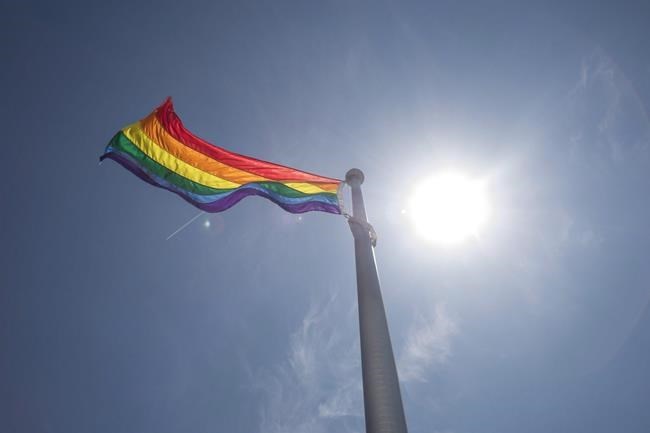VANCOUVER — An American transgender woman says she plans to appeal a Federal Court ruling that overturned the decision granting her refugee status in Canada and sent it back for redetermination.
In a decision released this week, Federal Court Justice Christine Pallotta found the Immigration and Refugee Board's appeal division made "reviewable errors" and an unreasonable decision to allow the application by Daria Bloodworth, who moved from Colorado to Canada in 2019.
Bloodworth applied for refugee protection in Canada over fears of transphobic persecution by U.S. society and individuals including an ex-roommate who menaced her with a gun, her former landlord, and a debt collection agency.
Her application for refugee status was initially denied in 2019, then approved on appeal in 2021, before the Canadian government sought a judicial review.
Bloodworth, who now lives in Whitehorse, said in an interview that she was "completely mystified" by the court's ruling, which was handed down in Vancouver, and is planning to take the case to the Federal Court of Appeal.
"I don't know why the minister decided to fight this in the first place," Bloodworth said. "It seems like they're wasting resources fighting little old me."
Bloodworth said that in 2019 she caught a flight from Denver to Calgary, where she made her original refugee claim, because the situation for trans people in America is "only getting worse."
She said her years in Canada since arriving have "absolutely" made her feel welcome, finding people less "unkind" than in the U.S.
"I don't think it's just because of the fact that I have yet to be threatened with a gun or a knife yet here, but I think, generally speaking, people here tend to be a little bit nicer than people down south," she said.
"The fact still remains that people in the U.S. are being radicalized against trans people. We're being called groomers. We're being called all sorts of things."
The court's ruling outlines how Bloodworth sought protection in Canada, believing that police in Colorado weren't willing to protect her from a former roommate at university who stalked her, standing outside her home with a gun.
"Bloodworth states she called the police or went to the police station to report events of stalking behaviour, but did not receive protection," the court ruling says. "She was told her former roommate had the right to open carry a firearm. Eventually, she stopped calling the police."
In her ruling, Pallotta says the appeal panel erred by requiring "perfect state protection" from the U.S., instead of adequate protection.
The judge sent Bloodworth's case back for consideration by a different panel of the refugee board's appeal division.
Pallotta ruled that the original appeal panel's finding that Bloodworth wouldn't get state protection from the U.S. due to how police handled her complaints was "contrary to the evidence."
The appeal panel said the original rejection of refugee status stemmed from failing to consider how open-carry gun laws in Colorado coupled with "the general climate of anti-trans hatred" in America could make Bloodworth "perpetually vulnerable and at risk."
But Pallotta said that refugee claimants have a "heavy burden" in arguing that a democratic country like the U.S. is incapable of protecting its own citizens.
Bloodworth said she believes in the strength of the fundamentals of her case, "and they're only getting stronger with the more messed up things that the U.S. is doing."
"Even though the U.S. is a democracy, this isn't stopping the politicians in the U.S. from doing these horrible things, which shows that even though it's a democracy, democracy in and of itself is not a source of state protection," she said.
Bloodworth said if she's sent back to the U.S., she'd be at risk of harm anywhere she goes.
"The people who ingest the same hate speech against trans people, the same people who hear that we're groomers and we're out to target children and all this other nonsense, they exist in Colorado, too. I mean, there's no place in the U.S. where these people don't exist," Bloodworth said. "If I had to go back to the U.S., I would probably have like a night at a hotel and then fly out to the next place because I can't live in the U.S."
The Department of Justice lawyer on Bloodworth's case did not respond to a request for comment on this story.
This report by The Canadian Press was first published Feb. 2, 2024.
Darryl Greer, The Canadian Press


